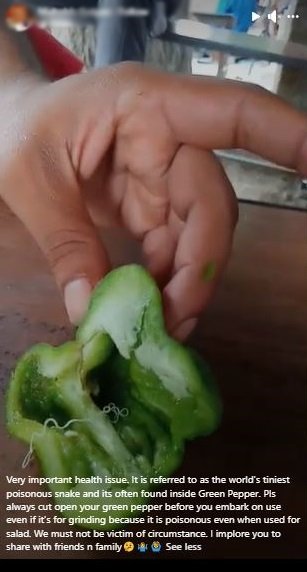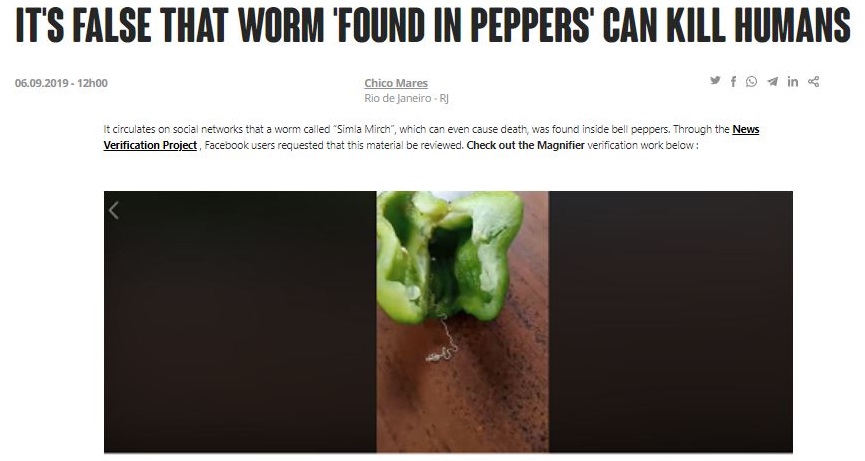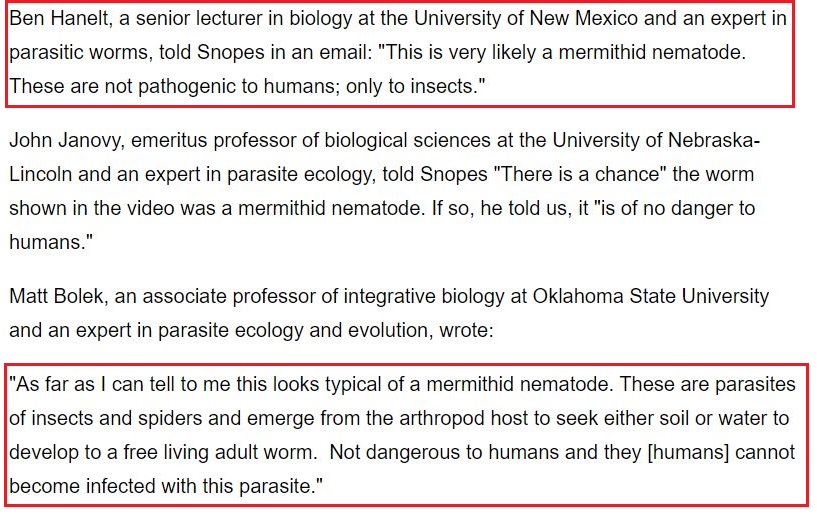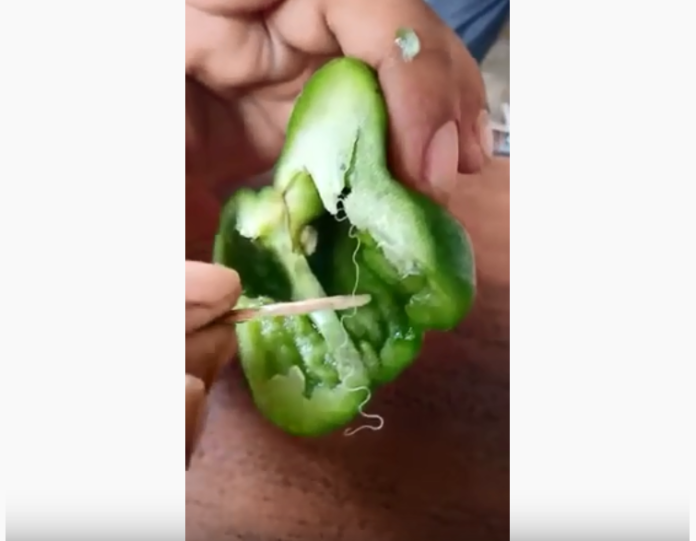A video is being shared on social media claiming that it shows the world’s tiniest poisonous snake found inside a green bell pepper or capsicum. Sharing the video, the post suggests people slice the green bell pepper before consuming or using it in cooking. Let’s verify the claim made in the post.

Claim: Video showing a tiny poisonous snake inside the green bell pepper.
Fact: The video shows a mermithid nematode worm that can parasite off insects and spiders, but not humans. The said worms are not harmful to humans. Hence, the claim made in the post is Misleading.
On reverse image search of the screenshots of the video, we found that videos showing similar visuals were published on social media at least since 2019. Those posts can be seen here and here.
When we searched for further sources using relevant keywords, we found an article that reported on this viral video in 2019.
The news site reported that the worm found in the bell pepper, which belongs to either the nematomorph phylum or the nematode of the Mermithidae family, does not parasitize humans. Reporting the same, another news site also published an article in 2019.
The worm does not attack the body and cannot cause death; and, as per the reports, it doesn’t even live on peppers. One of the reports suspected that someone had intentionally put the worm inside the pepper for producing a video.

Speaking about the viral video, Ben Hanelt, a senior lecturer in biology at the University of New Mexico, told Snopes: “This is very likely a mermithid nematode. These are not pathogenic to humans; only to insects”.

The experts whom the AFP fact-check had consulted too confirmed that the worm appears to be a nematomorpha or nematoda. Maria Achinelly, a doctor of natural sciences, told AFP: “They are able to parasite off cockroaches. Lobsters, spiders, scorpions, but never animals like birds, reptiles, amphibians or humans. They are not dangerous to touch or ingest.”
To sum it up, the worm that was spotted inside the green bell pepper seem in the video does not parasitize humans.


